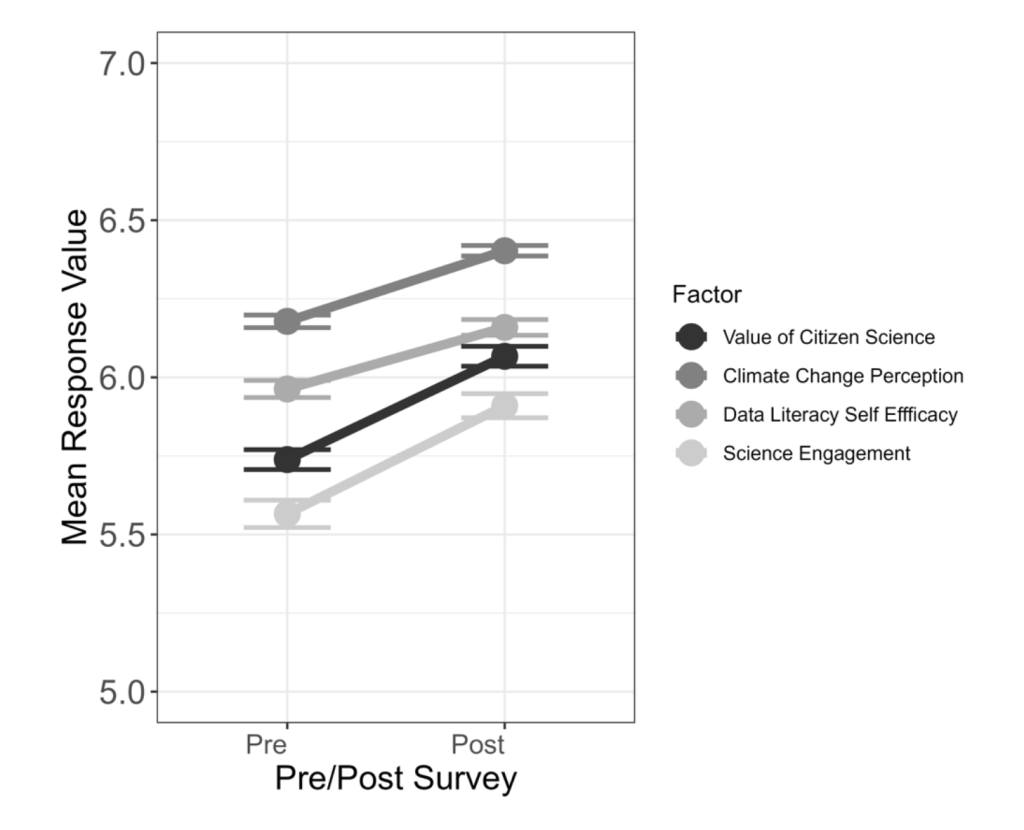“A Citizen Science Approach to Teaching Climate Change in Introductory-level Undergraduate General Science Courses” is a new publication from the Floating Forests project! This work is a major milestone in our efforts to adapt Zooniverse participation to undergraduate classrooms.
The article presents the development and evaluation of a classroom activity focused on the drivers and impacts of climate change, with a spotlight on the Floating Forests project (www.floatingforests.org). The classroom activity is intended for undergraduate students enrolled in general education science courses, and offers an inquiry-based investigation of climate change. The activity is built around Floating Forests as a real-world example of authentic climate research in order to provide context and help ground complex concepts in reality.
In the study, the team evaluated how participation impacted students’ 1) perceptions of the impacts of climate change, 2) data literacy self-efficacy, 3) beliefs about the value of citizen science, and 4) beliefs about science engagement, and found positive changes across the board!
The activity is freely available at Zooniverse Classrooms.


